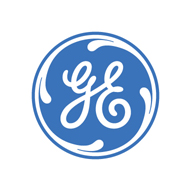Industrials
As Conglomerates Outperform in 2013, What to Expect Now: GE, 3M, UTX, Honeywell
Published:
Last Updated:
Conglomerates are often too much like the broad stock market for many investors, but other investors have a different take. Some investors flock to these giants for growth during economic expansion and hopefully some defensive cover via strong units while weaker units lag in a recession. The dividends are generally deemed as above-market as well. Conglomerates have led the market lately, and 24/7 Wall St. wanted to see if they have the ability to keep leading or if they are in need of a pullback.
Our stock screen search showed conglomerates leading the S&P 500 Index in our Finviz.com market snapshot. In fact, conglomerates were the single best category on a one-day, one-week (up 0.5%), one-month (up 3.8%) and three-month (7.8%) basis. Finviz showed that the conglomerates sector was the second best in the past six months (with 16.6% gains) but led all sectors year-to-date with gains of 28.7%. Over the past year, the sector is the third best of the nine major sectors, with gains of 32%, but that is right behind the number-two services sector gains of 32.2% and less than 1% under the financial sector at 32.9%.
So how does the market stack up for conglomerates ahead? We have reviewed Berkshire Hathaway Inc. (NYSE: BRK-A), General Electric Co. (NYSE: GE), 3M Co. (NYSE: MMM), Honeywell International Inc. (NYSE: HON) and United Technologies Corp. (NYSE: UTX) to see which conglomerates have performed the best and which had the most implied upside, according to Wall St. analysts. We also considered their forward P/E ratios and their dividends for a trade-off in a valuation analysis.
Berkshire Hathaway Inc. (NYSE: BRK-A) is extremely difficult to evaluate on traditional metrics. It pays no dividend, it has A-shares and B-shares, and its analyst following is very limited. That being said, Team Warren Buffett’s great American growth story is up a whopping 31% year-to-date in 2013. This is statistically unheard of, if you have been a Buffett follower over the past decade or so.
General Electric Co. (NYSE: GE) is within 3% of a multiyear post-recession high. Its shares are up about 18%, and the conglomerate keeps angling to lower its exposure to GE Capital so that it can get an industrial valuation, more than a valuation as an industrial giant with a huge banking and finance operation. At $24.25, GE trades at 14.6 times expected 2013 earnings and 13.2 times expected 2014 earnings. The consensus price target of $25.85 implies upside of almost 7%, but GE also leads the conglomerate peers in dividends with its 3.1% yield.
3M Co. (NYSE: MMM) is within about 1.5% of an all-time high and shares are up 28% year-to-date. At $117.55, 3M trades at 17.5 times expected 2013 earnings and about 16 times expected 2014 earnings. The consensus price target of $118.40 implies upside of only about 1%. While 3M has raised its dividend over and over, it yields about 2.1% now that shares have appreciated so much.
Honeywell International Inc. (NYSE: HON) is within 2% of all-time highs, but investors may want to take note that shares are up a sharp 33% year-to-date. At $83.50, Honeywell trades at almost 17 times expected 2013 earnings and 15 times expected 2014 earnings. The consensus price target of $87.08 implies upside of barely 4%, and Honeywell’s shares have done well enough that its dividend yield is down to 2.1% now.
United Technologies Corp. (NYSE: UTX) is within about 2% of its all-time high, and shares are up 30% year-to-date. With its shares trading at $105.50, UTX is currently valued at about 17 times expected 2013 earnings and 15 times expected 2014 earnings. The consensus price target of $115.67 implies upside of almost 10%, but UTX has the lowest conglomerate dividend, at 2.0%.
What this latest conglomerate screen indicates is that GE is underperforming, has attractive upside against peers and leads the pack in the conglomerate dividend yields above 3% that we expect to go even higher later in 2013. GE is still trying to exit many financial operations, and that could on the surface make many analysts consider it a no-growth or slow-growth story. It appears to be the best positioned for earnings valuations as well.
Stay tuned.
Are you ahead, or behind on retirement? For families with more than $500,000 saved for retirement, finding a financial advisor who puts your interest first can be the difference, and today it’s easier than ever. SmartAsset’s free tool matches you with up to three fiduciary financial advisors who serve your area in minutes. Each advisor has been carefully vetted and must act in your best interests. Start your search now.
If you’ve saved and built a substantial nest egg for you and your family, don’t delay; get started right here and help your retirement dreams become a retirement reality.
Thank you for reading! Have some feedback for us?
Contact the 24/7 Wall St. editorial team.